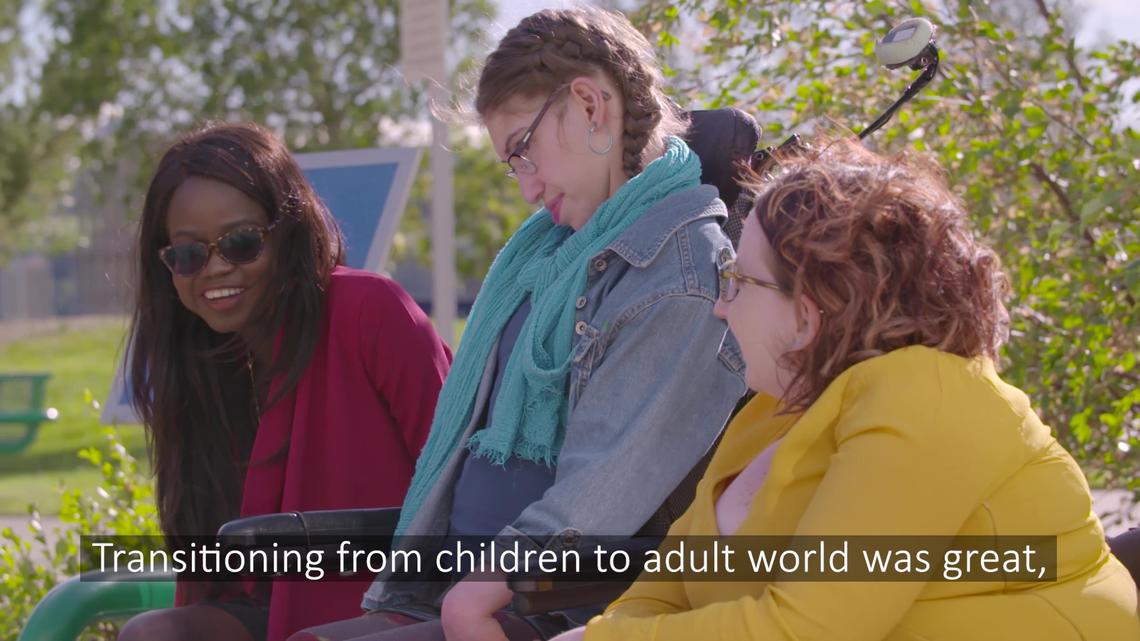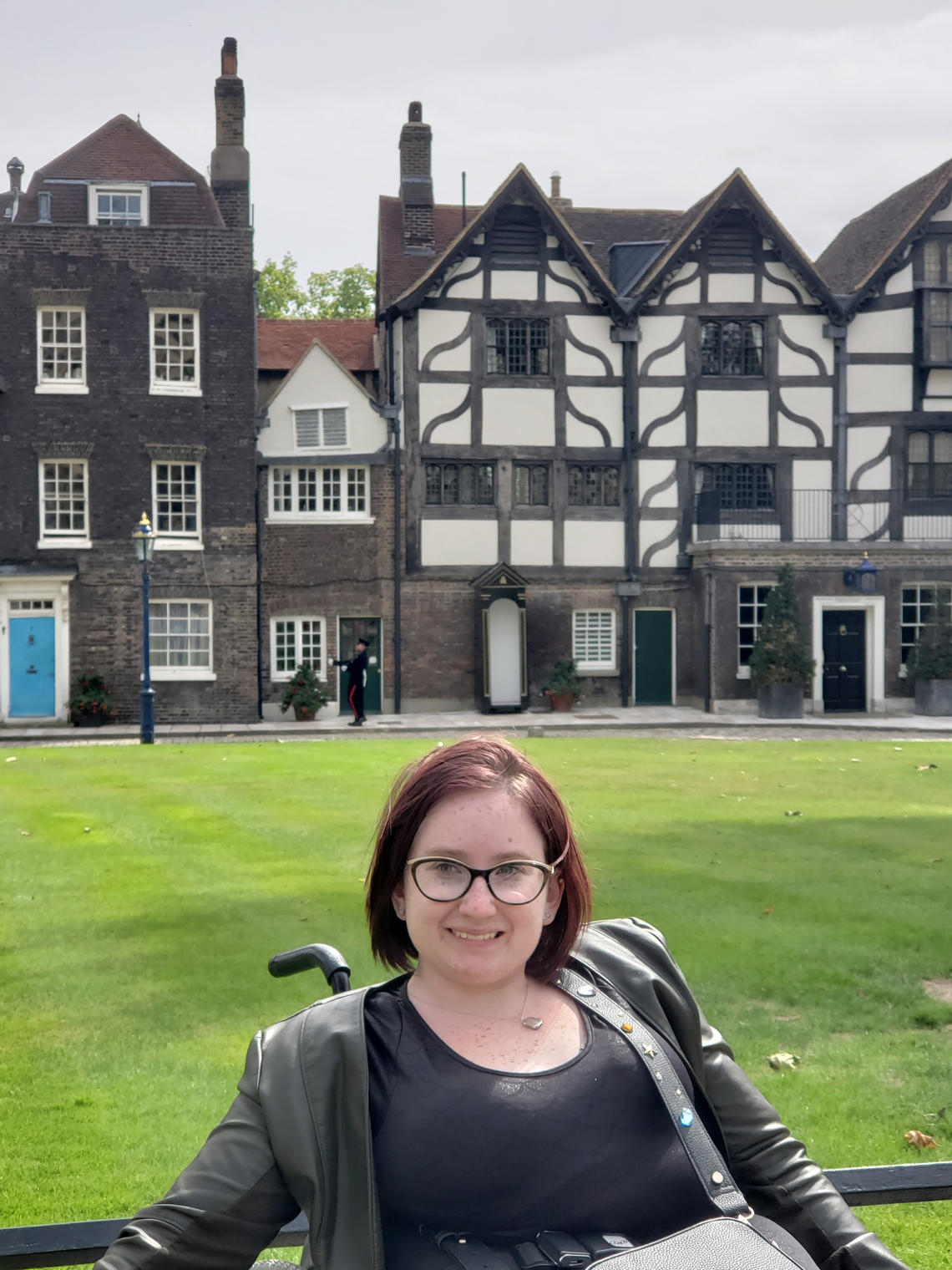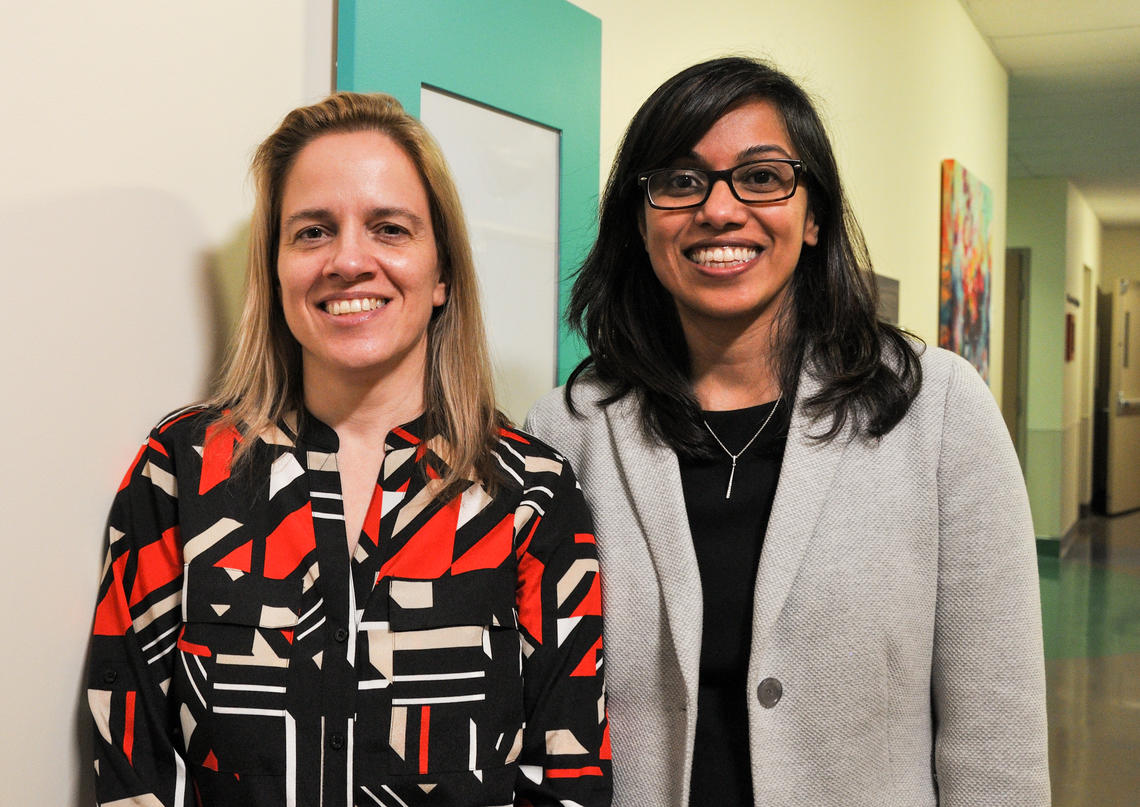Aug. 28, 2018
Young people with chronic health conditions get help transferring to adult care

Susan Samuel is leading the Transition Navigator Trial to improve the transition to adult care.
Edge Productions
Keighley Schofield starts her day with coffee before she launches into her hectic schedule. Born with spina bifida, a complex condition that affects the spinal cord, she has never let the chronic condition slow her down.
“I have had spina bifida since I was born so I am used to doing everything in my own way,” she says. Schofield recently completed her third year of psychology with top grades, volunteers in the community, and even finds time to collect and sell antiques on the weekends.
Schofield is also one of about 1,200 young people in Alberta who are moving from paediatric to adult health care. And despite all of Schofield's time management and leadership skills, she found moving into adult health care a stressful and difficult experience. "There were so many pieces of information I had to deal with, I wasn't anticipating all those things to come into play so quickly as soon as I turned 18."

Keighley Schofield, pictured here in London, helped develop the Transition Navigator Trial project.
Schofield family
New project to help young people with transition
The biggest challenge for young adults like Schofield is navigating the unfamiliar adult-oriented health-care system. Tasks such as managing multiple medical appointments while continuing on with education or work can be overwhelming at first. Understanding that there is a need for more guidance to help young people, a team of researchers from Alberta Health Services (AHS), the University of Calgary and the University of Alberta launched a province-wide randomized controlled trial to improve the transition experience. The lead of the project is Dr. Susan Samuel, MD, a paediatric nephrologist at the Alberta Children’s Hospital. Samuel is an associate professor in the Department of Paediatrics at the Cumming School of Medicine (CSM) and a member of the Alberta Children’s Hospital Research Institute and O’Brien Institute for Public Health.
“Our project gives these young adults access to social workers called navigators to help them master the transition,” says Samuel. “Some of these young people are living on their own and are very resourceful, others are living with their families. But they all need some help to figure out who to contact and what resources they may need to access.”
The project, called the Transition Navigator Trial (TNT), is being launched across Alberta in 2018. After enrolment, participants will be randomly assigned to either have access to a navigator for personalized support during transition or to the usual clinical care.

The project team’s lead Susan Samuel, right, and her co-lead, Gina Dimitropoulos.
Enrolling participants aged 16 to 21
Jennifer Schroeder is a social worker at Alberta Health Services and the navigator for this project in Calgary. “My goal is to improve the young person's experience and quality of life," she says. "I’ll be providing personalized and individualized help with their specific needs for a period of two years as they move into adult care.”
Alberta is one of the few provinces in Canada providing this kind of transitional support, which research suggests may help improve long-term health outcomes.The team would like to enrol 600 young people aged 16 to 21 over the next two years. Young people receiving health care for chronic conditions at Alberta Children's Hospital, Stollery Children's Hospital and Glenrose Rehabilitation Hospital are eligible for enrolment.
Keighley Schofield is one of many young people consulted in the process of developing the project and she applauds its goals. “To have someone there to navigate the system with me when I was 18 years old would have been great,” she says. “I want to pursue a career in helping other young adults with chronic health conditions; participating in this project to improve youth services has been in step in that direction."
Information on the Transition Navigator Trial
If you are interested in participating in this trial, you can enrol in Calgary at tnt@ucalgary.ca or in Edmonton at tntrial@ualberta.ca. You may also learn more at Transition Navigator Trial.
The project is funded by Alberta Health Services, the Canadian Institutes of Health Research (CIHR), the Alberta Children’s Hospital Foundation and the Stollery Children's Hospital Foundation. The team’s co-leads are Dr. Andrew Mackie, MD, University of Alberta and Dr. Gina Dimitropoulos, PhD, University of Calgary.
